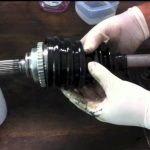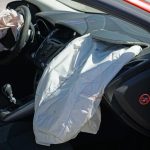
If you’re going to wrap your car, then it’s important to know whether or not to notify DMV. The Department of Motor Vehicles is responsible for enforcing laws related to the registration and safety requirements of cars.
You may be wondering if wrapping your car is legal or not and if there are any consequences if you don’t adhere to the DMV’s guidelines when doing so. So, if I wrap my car do I have to notify DMV?
Yes, you have to notify the DMV if you wrap your car because wrapping your car is like altering the appearance of your vehicle especially when you wrap it in another color other than the color registered with the DMV.
If I Wrap my Car Do I Have to Notify DMV?
Yes, you need to have the DMV notified if you wrap your car with another color other than the one registered with them. However, if the car wrap is still the same color as the one registered with them, you can skip the step.
For example, if the original color you registered with the DMV when you bought the car was black, and because of one reason or the other, you decided to change the either protect the vehicle’s paint or maybe the paint is bad, you decide to wrap the car with black vinyl, you don’t need to notify the DMV about that so long as the appearance or color is not changed.
However, it is advisable to call the DMV close to you to confirm. They are in the right position to give you the perfect answer you’re seeking for.
The Department of Motor Vehicles is responsible for issuing driver’s licenses and vehicle registrations.
Who Do I Need to Tell If I Wrap My Car?
If you’re wrapping your car and don’t know who to tell, or if you want to notify someone about the wraps, here’s who you should contact:
1. The DMV
The Department of Motor Vehicles (DMV) is responsible for inspecting cars that have been wrapped.
They’ll be able to tell whether or not the vehicle is up-to-date with their regulations, so they can issue a “Certificate of Compliance.” This certificate needs to be carried on your car at all times when it’s wrapped.
2. Insurance Company
Your insurance company may require proof that there are no changes made before they’ll approve coverage for a new vehicle wrap job.
It’s best if this proof comes from an authorized dealership; however, if there aren’t any authorized dealerships nearby (or at all), then go ahead and contact them directly instead!
That way they’ll know what kind of paperwork/proofing needs to be completed before approval.
Why Should I Notify DMV After Car Wrap?
When you wrap your car, you’re probably not thinking about the possibility that the DMV might come knocking on your door.
However, if you don’t notify them of the change in ownership, they might send someone over to check it out and issue a citation or fine for failing to notify them before.
This is especially true when it comes to registering any vehicle that’s been wrapped with a new owner—the title must be transferred within 30 days of purchase or sale so that both parties are aware of their responsibilities as owners (and potential liabilities).
- Proper Identification: This is important when the need to identify your car arises, for instance, in an accident. The updated details of your car will not slow down the process.
- Car Registration: To have an updated car registration and record with the DMV, your car wrapping action should be reported to the DMV. It is necessary for an updated record of your car registration.
Can I Wrap My Car with Different Colors?
When you’re wrapping your car, the color of the wrap is up to you. You can choose from any number of colors—even if they’re not necessarily “approved” by the DMV.
If you want to go unique and wrap your car with a single color, that’s fine too! If it makes sense for your car (if it has some kind of pattern or logo), then go for it!
The only thing that is not advisable is wrapping with non-matching multiple colors together. Find an appropriate color combination and stick with it throughout the process.
Is Car Wrapping Legal?
Car wrapping is legal in the United States. It’s not always easy to determine whether or not a car wrap is legal, so it’s important to check first.
You want to make sure that your state and city have laws on the books that permit this type of work; otherwise, you could run into issues with licensing requirements or fines if you were caught doing something illegal.
In most states (and cities) this will be true: car wrapping is allowed as long as there aren’t any hazardous materials on the vehicle being covered up (like tires).
If there aren’t any hazardous materials being removed from cars before they’re wrapped up then there shouldn’t be any problems with legality—but still, check first!
Pros Of Car Wrap
- A car wrap is a great way to express your preferred taste. You might have a taste different from others, and one can be car wrapping.
- A car wrap is a great way to get your business noticed. When you wrap your car, people also notice you and your business.
- A car wrap is a great way to make a statement about who you are and what kind of company you run or work for, or just how much fun it can be if everyone else does it too!
- It’s easy to maintain and it is also easy to remove.
Car wrap makes it easy to clean your car and keep it looking great. A car wrap is a fun way to change the appearance of the car from dull drab gray or white into something with color and personality that will grab attention wherever you go!
Cons Of Car Wrap
There are some cons to a car wrap. These include:
- Car Wrap May Not be Permanent: If you want your car wrap to last, it will have to be removed at some point. You can always get a new one, but this will cost money and time.
- Car Wraps Can be Expensive When Compared with Other Options: Like painting or vinyl decals that don’t require any installation work on your vehicle’s interior or exterior surfaces before applying them onto your vehicle (and vice versa). This could mean spending hundreds of dollars just for the labor alone!
- The Removal Process Becomes Labor Intensive: After continuous wrapping since there are multiple steps involved in removing each layer after application so as not to damage anything else before removing it completely from those areas where they’re placed on the respective sections (depending upon what kind of material used throughout each different type).
Conclusion
You do not have to notify the DMV about your car wrapping in some states and cities because of its temporal nature. Check for the requirements in your state or city. Notifying the DMV is always a good option. It prevents and saves you from future hassles, costs, and embarrassment.









